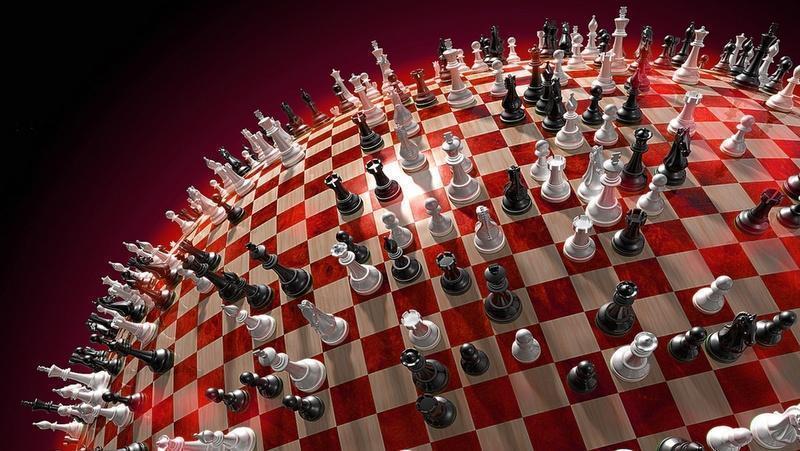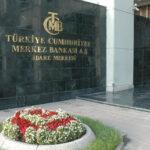BY ZEYNEP GURCANLI
Diplomacy is not a one-sided game; There is always an “opposite side.” Therefore, a country’s sharp turns in international relations do not always provide the expected reaction from the “other side.”
This is the biggest problem in the recent foreign policy of the AK Party government. The “other side” cannot or does not want to return to normal as quickly as the policy makers in Ankara.
This was the case in Egypt-Turkey relations. AK Party government officials, after referring to Egypt’s President Sisi by putting insulting adjectives in front of his name for a long time, suddenly started talking about “normalization with Egypt.” However, months have passed since the “normalization” steps, but the desired response from Cairo still has not been found.
Likewise, the “reconciliation” with Saudi Crown Prince Mohammed Bin Salman, who was said to be an “instigator” after the Khashoggi murder, did not go as the AK Party government wanted. Didn’t the Crown Prince, who talked about an investment of 35 billion dollars when he went to Egypt, and signed a joint venture of 4.5 billion dollars during his visit to Greece, “came empty-handed” to Ankara, as people say?
With the United Arab Emirates, which AK Party officials have long described as “the financier of the July 15 coup attempt”, a small-scale “swap agreement” involving lending money to the Central Bank, rather than an investment, came out of normalization.
S-400S FROM RUSSIA
Now the pointer has turned to Russia. There is a high expectation of money flow from Putin, with whom President Erdogan first met in Tehran and only days later in Sochi, before the planned election in Turkey. However, after both meetings, it cannot be said that there is a sign of Russian capital flow to Turkey. Instead, President Erdoğan returned from Sochi with the condition that he “Make peace with Assad” in hand.
The steps toward this peace have already begun. Friendly messages have repeatedly been sent to Damascus by Ankara. It cannot be said that these have received much response – for now.
As Russia narrows room for maneuvering in Ankara, which is caught in a deep economic crisis, Ankara’s political maneuverability is further narrowed. Just when a delegation went to Washington to negotiate for Turkey’s much-needed F-16s, Moscow stated that, “The agreement for the purchase of the new S -400 has been signed.” Although the officials of the Defense Industry say that there is no new S-400 agreement, Ankara’s track record is known. The question marks in everyone’s minds are deeper now after these statements from Moscow.
From this perspective, the question is: Will President Erdogan’s visit to Ukraine today and his meeting with Zelenskyy be enough to lower eyebrows in the West that have been raised over Ankara’s Russian policies? With the inclusion of UN Secretary General Guterres in the meeting in Lviv, Ukraine, it might be possible to mitigate the Ukrainian and Western reactions towards Ankara. A trip to Lviv may save the AK party government some more time. However, considering the increasing pressure on Turkey to “join the Russian embargoes” in the West, it is obvious that Erdogan’s time will not be long.
“NORMALIZATION” WITH SYRIA
Things are also complicated in the AK Party government’s “reconciliation” move with the Assad regime.
The new Defense Minister of Syria, Ali Mahmud Abbas, did not soften the tone of the statements made so far from the Assad regime regarding Turkey in his statements at a security meeting he attended in Moscow. It was also interesting that while the Syrian Minister accused Turkey of being an “invader,” his Russian colleague Shoigu was also present. Obviously, the Russians, who are trying to “mediate” between the AK Party government and the Assad regime, have not yet found the success they had in Ankara in Damascus.
On top of all this came the news that the Syrian official news agency published based about the Assad army officials. It was announced that three soldiers of the Assad army were killed in operations carried out by Turkey in the countryside of Aleppo. At the same time, “the operation is starting, be careful” announcements made to the public from mosques in the cities on the Syrian border on social media further complicated the already complicated affairs. However, the mosque announcements that Erdogan said started “suddenly one night” were not a sign of the operation. This was immediately announced by Interior Minister Soylu. Soylu publicly criticized the bureaucrats who allowed the mosque announcements by saying it was “an overdue announcement.”
THE “55 BILLION DOLLARS” ISSUE
The last item in Ankara’s messy business is the rumor that “a total of 55 billion dollars will come from the Gulf Arabs and Russia before the election.”
In diplomatic circles, this rumor is not widely respected. The rumor brings with it many questions:
How will this money come to Ankara? As a swap, investment or portfolio? Considering that even the total value of all companies in the Wealth Fund is calculated as approximately $40 billion, what can be given/shown in return for this money?
What happened to the Saudi Crown Prince, who never mentioned the issue of Saudi capital flowing to Turkey when he was greeted with turquoise carpets in Ankara? Did he suddenly change his mind?
How much of the billions of dollars said to come from Moscow will be caught in the West’s secondary embargoes on Russia?
Will such a large amount of money be transferred to the control of the current economic administration in Turkey, which is treated with international ridicule?
By the way, we learned from the news of Ayşe Sayın from the BBC that Nebati, the Minister of Treasury and Finance, is not very popular, even within the AK Party.
Things are complicated in Ankara. Too much talk, not enough action.










